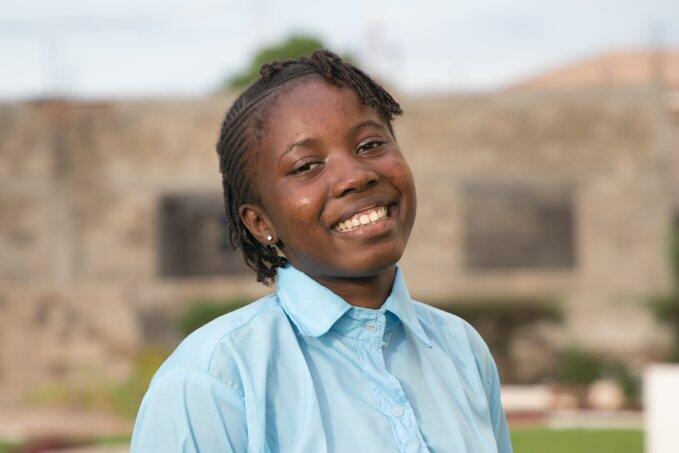For every girl, the right to speak and be heard!
Banjul, 11 October 2020 - Every year since 2011, by proclamation of the United Nations General Assembly, the International Day of the Girl is celebrated all over the world on 11th October.
It is a day to recognize girls' rights and draw attention to the unique challenges they face, and how they overcome them. We and our partners work with girls in The Gambia to address their vulnerabilities and demand equal opportunities for all. This year, amid the COVID-19 crisis, the opportunity is presented to reimagine a better world inspired by adolescent girls - sharing their voice, their solutions - under the theme, ‘My voice, our equal future.’
As in other parts of the world, adolescent girls in The Gambia are not a homogenous group. Their diversity that emanates from geographical location, ethnicity, age, abilities/disabilities are also some of the differences from which they draw their strength. In The Gambia, adolescent girls are starting to lead changes towards a more equal and inclusive country. Some progress has been registered in girls’ education and empowerment, for example, but the pace of progress must be accelerated to match long-standing barriers and the limited opportunities available to them. Also, adolescent girls are demanding a life free of violence from certain practices, such as female genital mutilation, child marriage, sexual exploitation and abuse within and outside their homes, as well as in institutions that are meant to protect them. Not only do these practices violate a girl’s bodily integrity and autonomy, they steal her confidence and ability to make informed choices about her life. These practices silence the girl child!
Evidence suggests an increase in violence and harmful practices against girls during the period of restrictions in movement and stay-at-home measures due to COVID-19. This is in line with a global study by the UN and partners that shows the pandemic could result in an additional 13 million cases of child marriages and 2 million more cases of female genital mutilation by 2030. However, while these figures seem farfetched, it is noteworthy that girls in The Gambia are a part of this statistic.
As such, in order to mitigate this drastic impact of the pandemic on girls, the Government of The Gambia and partners must galvanize efforts to create an environment where every girl is protected and safe. Policies and programmes initiated must be duty-bound to take into consideration the differing, yet critical, needs of girls in terms of protection from sexual and physical exploitation and discrimination in all forms including in the field of education.
Hence, we ask the following of duty bearers in The Gambia:
- Parents and communities to allow their daughters to enroll and complete their education before marriage and let them make the informed choice of when and who to marry.
- Women leaders to come forth to inspire girls, advocating for their equity and to stand up alongside them to continue breaking barriers that result in a more equal and inclusive world.
- Government to further strengthen the implementation and impact of policies and programmes that promote the rights of girls, such as the second chance education programme and also set-up surveillance mechanisms to monitor cases of child marriage and female genital mutilation, and to educate communities on the risks associated with subjecting girls to these practices.
- Government and partners to accelerate the operationalization of the gender-based violence response mechanism and reinforce the existing laws to protect girls in order to reduce the risk and mitigate the consequences of gender-based violence.
In addition, we call on adolescent girls themselves, to not lose the opportunity of using the safe spaces that are available to them to make their voices heard and to be resolute in their ambitions.
Girls are speaking up, and we must listen!
***
Media contacts:
Haddy Jonga, Programme Analyst - Communications, UNFPA The Gambia Tel: 3303073 Email: jonga@unfpa.org
Abdoulie Sey, Communication Officer, UNICEF Gambia Tel: 3940384 Email: asey@unicef.org


